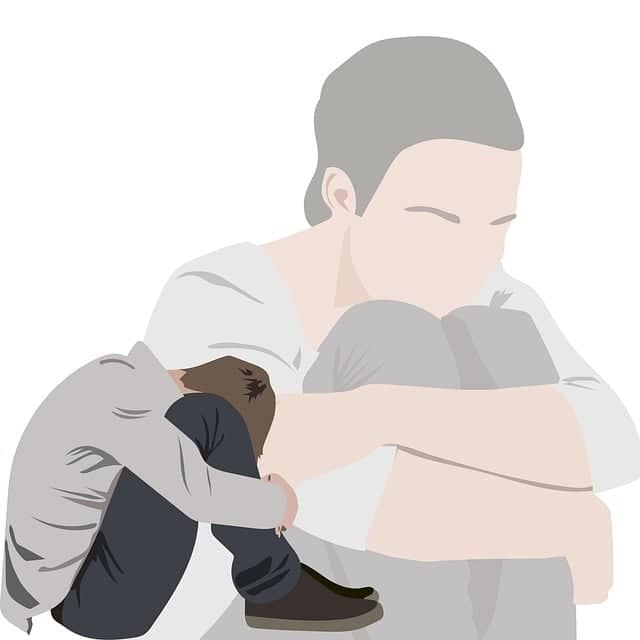When we experience a traumatic event, grief is what we feel. Mourning is what we do about it. Grief is the means by which we process our loss, celebrate what we had before, mourn the vacuum that now exists, and come to terms with a new world – the one in which our dreams are significantly altered. In this difficult process we gradually and reluctantly turn from the past and once again walk to the future to find new dreams and new joys.

This post is a summary of chapter 3 — Why Am I So Sad? Dealing with Loss and Grief Issues from the book “When War Comes Home” by Chris Adsit, Rahnella Adsit, and Marshéle Carter Waddell.
“Grief is love not wanting to let go.” Rabbi Earl A. Grollman
Irish writer Frank O’Conner points out, when we feel a great sense of loss “it means that we had something worth grieving for.”
Grief is always triggered by a loss of some sort.
“Loss is not the enemy. Not facing its existence is.” Dr. H. Norman Wright, The New Guide to Crisis & Trauma Counseling
When we experience a traumatic event, grief is what we feel. Mourning is what we do about it.
Grief is hard on a person and mourning is difficult work. Effective grief work is not done alone. How long will it take? Honestly, probably a lot longer than you’ll like.
The Purpose of Grief
God built the grief response into us for the purpose of mentally, emotionally, and spiritually processing loss-producing events. If we are not willing to face the grieving process, or if we try a short-cut, we’ll be left adrift in our sea of pain, never reaching the shores of healing that the Lord intends for us. As many grief experts say, “You can’t heal what you can’t feel.
How To Grieve
It’s a process, for sure. But it’s not a precise process. Each person will grieve a bit differently than the next. But, there are some generalized descriptions that are useful – kind of like milestones along a journey , to let you know that you are making progress – or not.
Elisabeth Kübler-Ross was a Swiss physician who did groundbreaking research in the area of grief. Her book On Death and Dying has been a classic for decades. In her studies she found that there is a pattern most people experience when they encounter a life-changing trauma or crisis.
Stages of Grief/Mourning
Over an unspecified period of time, the person progresses through these stages:
- Immobilization stage – shock, initial paralysis after being exposed to the crisis or trauma — can’t decide what to do next. It takes awhile for the enormity to register and sink in.
- Denial stage – trying to avoid the inevitable. No! This can’t be happening!
- Anger stage – Frustrated outpouring of bottled-up emotion. Rage seething below the surface at all times; lashing out at anyone for the slightest reason; blaming others; sometimes cold, icy anger; self-isolating to avoid blowing up.
When anger is bottled up indefinitely, it morphs into bitterness. It’s okay to be angry. It’s what we do with the anger that can lead us into sin.
- Bargaining stage – Seeking in vain for a way out. Making promises to God if He’ll fix things; setting conditions for healing.
- Depression stage – Final realization of the inevitable. A very sad time, but also the turning point, because the griever is finally resolved to the fact that he or she won’t be able to restore life to the way it was. It’s the staging area for victory.
- Testing stage – Seeking realistic solutions. Maybe I should try getting out more. Maybe I should talk with someone about my situation. Maybe I should start exercising again. Maybe I should join that Bible study I heard about.
- Acceptance stage – Finally finding the way forward. They are now fully acknowledging the trauma or crisis. It was bad – real bad – but I survived. I’m going to make it. My world has changed, but I can live in this new world. I could even prosper.
A Few Words About The Grieving Process
It’s not precise. You may not hit all of these stages. You may skip a stage and then go back to experience it later. You may whiz through one stage and sit in another for a long time. You may find yourself going back and forth between a couple of stages or looping around to various stages willy-nilly. Everyone is different! Therefore, don’t give in to the temptation to compare your grief process with someone else’s.
Living With Pain and Suffering
To receive a free copy of the following handout The 70 Weeks of Daniel Explained and Tribulation Order of Events—smoking or non-smoking you choose — Join My Mailing List
Check out my latest book — Words by God’s Grace: A Poetic Compilation About the Damage of Hurts and the Price of Choices
